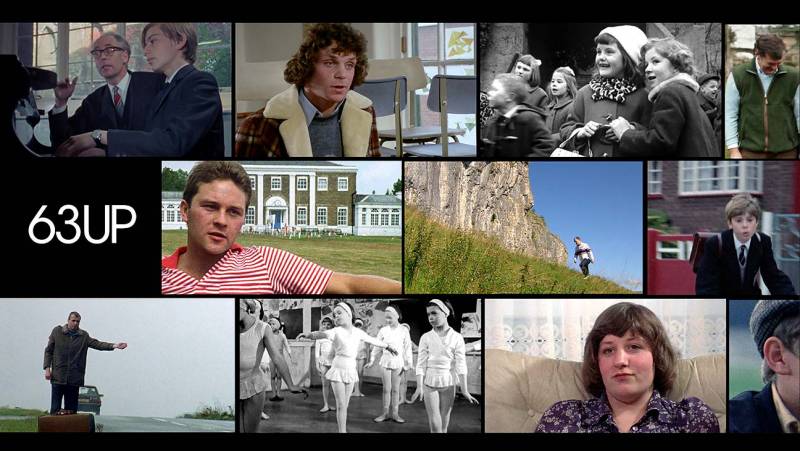For better and worse, class pride has always run a deep vein through British society, upstairs and down. Not so the United States, where the mere mention of social class often triggers strenuous manifestos about meritocracy and equal opportunity. Which may be why attempts to reproduce Michael Apted’s long-running Up anthology—inquiring into the persistence of social hierarchy in post-World War II Britain—have so far failed this side of the Atlantic. For those who think Downton Abbey is pretty much a documentary, the Up series is the perfect antidote.
Beginning in 1964 with 7 Up, directed for British television by Paul Almond with Apted initially on board as a researcher, the series tracked a cross-section of 14 children from England’s famously rigid class system, with Apted checking in every seven years thereafter to document what and how they were doing. I’m roughly the same age and grew up lower middle class in London, so I’ve followed the series obsessively from soup to nuts. But you don’t have to have been as hooked as I on the anthology (now available as a boxed set) to find your way around the latest, 63 Up, which is studded with flashbacks to catch you up on how the group has fared since we first met them, mingling to frolic and brawl in a grim-looking adventure playground.
Inevitably a quiet tempo has settled on the hopes and dreams of these sexagenarians as they answer questions from Apted or go about their business with varying degrees of discomfort under cameras that have dogged them for decades. Some have retired; others contemplate their own mortality as they tell of parents passing away. One is seriously ill; another has died since 56 Up. Most seem content with what they have and express few regrets about what might have been. Luck, love, and loss, triumph and defeat, have beveled the edges of even the most pugnacious and intrepid.
Through every installment, Apted has peppered (some say, resentfully, pestered) the group with questions about whether England’s class divisions have grown more permeable. For some the short answer has become versions of “for the love of mike, Michael, quit asking, we are so much more than our station in life.” Apted deserves credit for including their protests.
The long answer to his probing is: It’s complicated. Take Tony, the charming, infuriating Cockney child of London’s East End, and the only Upper who frankly enjoys the limelight. As a teenager Tony predicted some of his future with astonishing accuracy, becoming first a jockey and then (“If I’m not good enough”) a cab-driver. Both jobs came to pass, but what Tony couldn’t dream of was that he would one day buy a handsome holiday home in Spain for his growing family and plan to build a resort there. What followed had more to do with the global economy than with his business chops, but today Tony, a proud husband, father, and grandfather who moonlights as a cabbie in TV crime shows, has switched his working-class-Tory affiliation for fear of Brexit, and may cast in his lot with the Green Party.

9(MDAxOTAwOTE4MDEyMTkxMDAzNjczZDljZA004))

